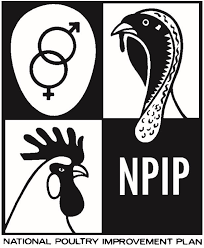The U.S. Department of Agriculture’s Animal Plant and Health Inspection Service (APHIS) is updating the National Poultry Improvement Plan (NPIP) Program Standards to finalize provisions for compartmentalization of primary breeding poultry establishments to protect against disease. Compartmentalization is defining a specific group of animals that are maintained under strict biosecurity and health standards, and therefore have a distinct health status. The compartment includes all components of management such as farms, feedmills, hatcheries and egg depots, ensuring that these subgroups are managed using the same consistent, strict biosecurity and health practices, and are kept separate from other animal populations. These NPIP provisions also include the auditing system APHIS will use to evaluate them.

APHIS’ NPIP updates are consistent with World Organization for Animal Health recommendations and assure trading partners that there is a minimal risk of the compartmentalized animals spreading disease in the event of an outbreak. Specifically, the updates will help the United States maintain its export markets in the event of a disease outbreak.
According to APHIS, “We are making one minor editorial change to the compartmentalization provisions that we are adding to the NPIP Program Standards. Specifically, we are clarifying that visitors to farms, feedmills, hatcheries, and egg depots must agree in writing to follow company-established protocols regarding personal items and food. Therefore, we are updating the NPIP Program Standards as described in our previous notice and in this document.”


